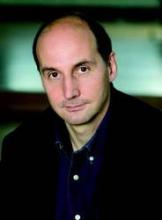Most of us have had nightmares about failing exams we took at school or college. We wake up with a jolt, perspiring – and then have that delicious realization that it was all just a bad dream. We sigh and smile, roll over, and go back to sleep, secure in the knowledge that we are teachers, professors, engineers, lawyers, or doctors, after all.
Wait, did I include doctors? I apologize. Doctors are not included in that group of professionals who can rest easy at night when these dreams assail them. Medical school goes on forever. All the years of dedication to reach a certain level of knowledge and understanding of the body, disease, diagnosis, and treatment appear to have been in vain. For the last 20 years, American doctors alone have been required to take recertification examinations in their respective specialties. Our colleagues in other English-speaking countries shake their heads in bafflement, pity, and relief when they hear about it.
It doesn’t matter that we took more advanced exams in our specialties to get board certified after long and arduous residencies. And we are always attending conferences to keep up.
At first, after a bit of grumbling, we rationalized that maybe it wasn’t such a bad thing, especially as the American Board of Medical Specialties (ABMS) told us it was a way of assuring the public that we kept up to date – and anyway, we had no choice. There was a little disquiet, because these recertification requirements did not apply to everyone.
The older doctors were exempted and aptly called grandfathers. Quite a few people thought it didn’t make sense, because the grandfathers were the least likely to be up to date. How could that possibly be reassuring to the public? But the younger doctors couldn’t do much about it. It was like Animal Farm, where some animals were said to be more equal than others. But it was more mundane than that. An official with the American Board of Psychiatry and Neurology (ABPN) told us at a conference that there were threats of class action suits by the grandfathers and the board didn’t want the expense, which would be passed on to us, anyway.
As the years went by, there were more things we had to do to prove we could do our job of looking after patients, even though most of us were already doing it. The ABMS called these additional duties maintenance of certification, or MOC.
When we were not caring for our patients, we were busy with our MOC, attending more conferences, spending less time with our families and more money on various educational “products.” Ironically, one of the topics we had to study was “physician burnout,” because it could affect patient care. No one said that all these extra tests were one of the major causes of burnout.
Some thought it was a cruel joke and wondered whether MOC was short for mockery. It was all becoming too much, but the ABMS said these new requirements were for the benefit of our patients, and the vast majority of doctors care about their patients, so everyone was afraid to speak out.
Finally, a very brave doctor, Paul Teirstein, chief of cardiology and director of interventional cardiology at the Scripps Clinic at La Jolla, Calif., had had enough. He and his colleagues sent out a petition that nearly 20,000 doctors signed protesting the increasingly burdensome MOC requirements of his board, the ABIM (American Board of Internal Medicine). They formed a group called Physicians for Certification Change, making it clear that they wanted to keep up to date and be good doctors, but they believed that there were other ways to do it. They also pointed out that the ABIM, which said it was very important that everyone practiced evidence-based medicine, had no evidence that the new system made them better doctors. You can read Dr. Teirstein’s fine op-ed.
At first, ABIM board members refused to respond directly to the petition for more than a year. They issued edicts about the importance, validity, and necessity of their MOC process. Then suddenly in January of this year, to everyone’s surprise, Dr. Richard J. Baron, CEO of the ABIM, issued an apology, saying that the board had been wrong, had misjudged the situation, and had been out of touch with the will of the doctors it claimed to represent. The ABIM suspended its plans and price increases as well as its threats to name those not in compliance with its program for a period of 2 years, pending further review. It was as though the ABIM was fearful of a revolt and needed time to regroup.


